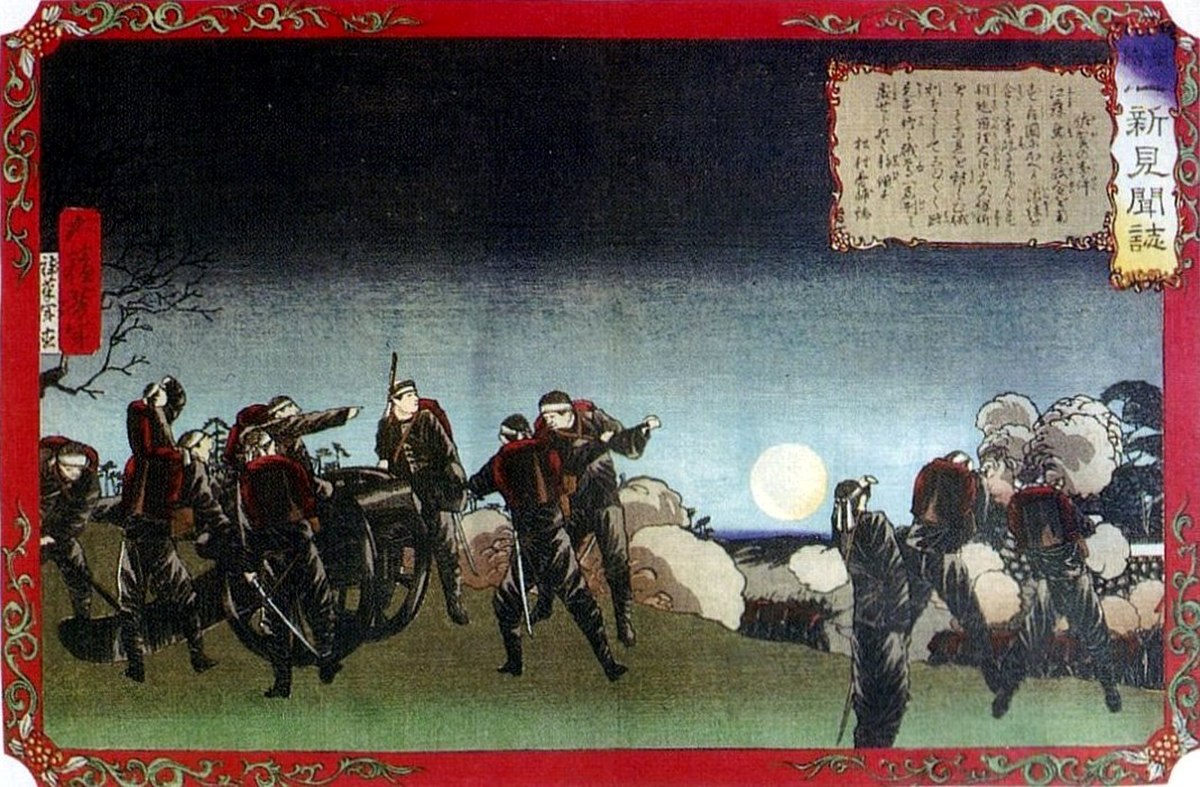
Saga Rebellion
Saga Prefecture, JapanFollowing the 1868 Meiji Restoration, many members of the former samurai class were disgruntled with the direction the nation had taken. The abolition of their former privileged social status under the feudal order had also eliminated their income, and the establishment of universal military conscription had eliminated much of their reason for existence. The very rapid modernization (Westernization) of the country was resulting in massive changes to Japanese culture, language, dress and society, and appeared to many samurai to be a betrayal of the jōi (“Expel the Barbarian”) portion of the Sonnō jōi justification used to overthrow the former Tokugawa shogunate.
Hizen Province, with a large samurai population, was a center of unrest against the new government. Older samurai formed political groups rejecting both overseas expansionism and westernization, and calling for a return to the old feudal order. Younger samurai organized the group Seikantō political party, advocating militarism and the invasion of Korea.
Etō Shinpei, former Justice Minister and Councilor in the early Meiji government resigned his posts in 1873 to protest the government's refusal to launch a military expedition against Korea. Etō decided to take action on the 16th of February 1874, by raiding a bank and occupying government offices within the grounds of the old Saga castle. Etō had expected that similarly disaffected samurai in Satsuma and Tosa would stage insurrections when they received word of his actions, but he had miscalculated badly, and both domains remained calm. Government troops marched into Saga the following day. After losing a battle on the border of Saga and Fukuoka on February 22, Eto decided that further resistance would only result in needless deaths, and disbanded his army.
